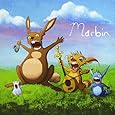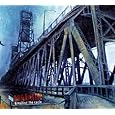Marbin
Printed From: Progarchives.com
Category: Progressive Music Lounges
Forum Name: Interviews
Forum Description: Original interviews with Prog artists (which are exclusive to Prog Archives)
URL: http://www.progarchives.com/forum/forum_posts.asp?TID=79450
Printed Date: July 04 2025 at 00:22
Software Version: Web Wiz Forums 11.01 - http://www.webwizforums.com
Topic: Marbin
Posted By: toroddfuglesteg
Subject: Marbin
Date Posted: July 03 2011 at 05:02
|
Marbin is one of those bands who has exploded onto the scene during the last years. Their music is a blend of eclectic prog and fusion/jazz. Their new album Breaking The Cycle is a great album and one of the better prog albums to come out of USA during the last decade. I got in touch with the band and Danny answered my questions. #################################################################################### When, where and by whom was your band born ? Did any of you, past and
present members, play in any other bands before joining up in your band ? Why
did you choose that name and which bands were you influenced by ?
The band name is a combination of our surnames Markovitch and Rabin. When I
was released from the IDF I started my first band with Dani, an Israeli bassist
Elad Muskatel, and a Chicagoan drummer Noah Plotkin, but soon after Dani and I
departed and created Marbin. How much is your music steeped in Jewish
culture?
I donít think itís Jewish as much as itís Israeli. Both Dani and I grew up
listening to Israeli folk music, and it shows in our approach to song writing.
Many of the early Israeli folk composers were influenced by classical music
(especially Russian), so generally speaking, itís more diverse harmonically and
more intricate melodically than US folk, for example (which we love as
well).
Did your time in IDF have any impact on your music?
It did in many ways. I believe that my playing has a direct link to who I
am, and serving in the infantry has definitely changed me. When I was released
from the army after serving for three years, my saxophone playing was so rusty
that I literally couldnít make a sound. Relearning how to play was a very
strange experience. I knew how to become technically proficient, and I had all
the theoretical knowledge I obtained in high school, but musically speaking I
was at a completely different place than where I was when I stopped playing in
2003. I wasnít listening to Coltrane, Wayne Shorter, Parker, or Ornette anymore.
I was listening to Leonard Cohen, Tom Waits, Johnny Cash, and Nick Drake. I had
to find my voice on saxophone not by learning, mimicking, or borrowing from
other saxophone players (which was no longer exciting for me), but by focusing
solely on my own playing and developing a style that would work with the songs
Dani and I write.  Over to your two albums.
Your debut album Marbin was released in 2009. Please tell us more about
this album.
There are two types of music: good music and bad music. It is good music,
but not a masterpiece. I do like it though. We played music that sounded like
nothing that was ever done before, so in that sense we had success. Some of the
prepared guitar sounds that Dani got on this album were amazing, especially in
the context of produced music. The album was based on our duo show (a lot of
guitar looping) so the compositions had to be modal and that made them somewhat
limited.  Your second and most recent album Breaking the Cycle was released earlier
this year. Please tell us more about this album.
This album caught us in a transition period between the duo and the
quartet. So some of the songs are modal (like A Serious Man), and some of them
are not (like Burning Match). This album is great; we still have a long way to
go, but it was better than the last one. I might sound full of myself, but I
think itís the best instrumental album to come out since Methenyís Secret Story
(which came out 19 years ago). We just finished composing the music for our
third album and hopefully we will be able to top this one as well.
You were involved in the Paul Wertico's Mideast-Midwest Alliance album
Impressions of a City from 2009. It is not listed as an official Marbin album.
Please tell us more about this album.
This was the first time we played with Paul. He heard us at his house, and
then at his daughterís bat mitzvah, but the first time we played a note together
was in the studio. We came to the studio, improvised for a couple of hours, and
Impressions was born. Itís a different thing, and for what it is, itís great.
Paul is an amazing musician, and meeting him was the best thing that happened to
us. There is no one in the world Iíd like to play our music more than him.
Downbeat Magazine picked it as one of the best albums of 2010, so that was a
nice surprise. On the other hand, even though we had the critics on our side, it
didnít translate to too many shows.
Your sound and music is pretty special and I am not entirely dialed into
the jazz world. How would you describe you music and which bands would you
compare yourself with?
Even if you were a jazz aficionado it wouldnít matter. There is nothing
like it; composition or playing wise, Dani and I have created something unique.
Aesthetically weíre closer to the Beatles, Leonard Cohen, or Johnny Cash than to
any jazz artist. What we are as players is obvious, and itís not my place to
say, but we understand that the music doesnít start and end with our solos. We
always put the song first.
What is your plans for this year and beyond ?
Play 250 shows next year, and in two years, 340 shows. We donít have tons
of money to put into PR, so our only way to get our music to the people is by
playing out as much as we can (which we love to do anyway). Thank you to Danny for the interview Apologies for the bad picture quality due to some technical difficulties. These will be sorted out shortly. Their homepage is http://marbinmusic.com" rel="nofollow - |
Replies:
Posted By: Windhawk
Date Posted: July 03 2011 at 05:33
|
Great interview. Now someone just needs to add them to the database - last I saw it was halfways accepted by the fusion team, and then passed on to Crossover. Crossover rejected them when they were suggested first time around, if my memory serves me right, and the fate of this inclusion then lies in the gap between two chairs ;-) ------------- Websites I work with: http://www.progressor.net http://www.houseofprog.com My profile on Mixcloud: https://www.mixcloud.com/haukevind/ |
Posted By: rushfan4
Date Posted: October 30 2011 at 09:05
|
And the gap continues? ------------- 
|
Posted By: idlero
Date Posted: December 29 2011 at 11:39
| they make really good music, Breaking The Cycle is one of my favourite 2011 releases |